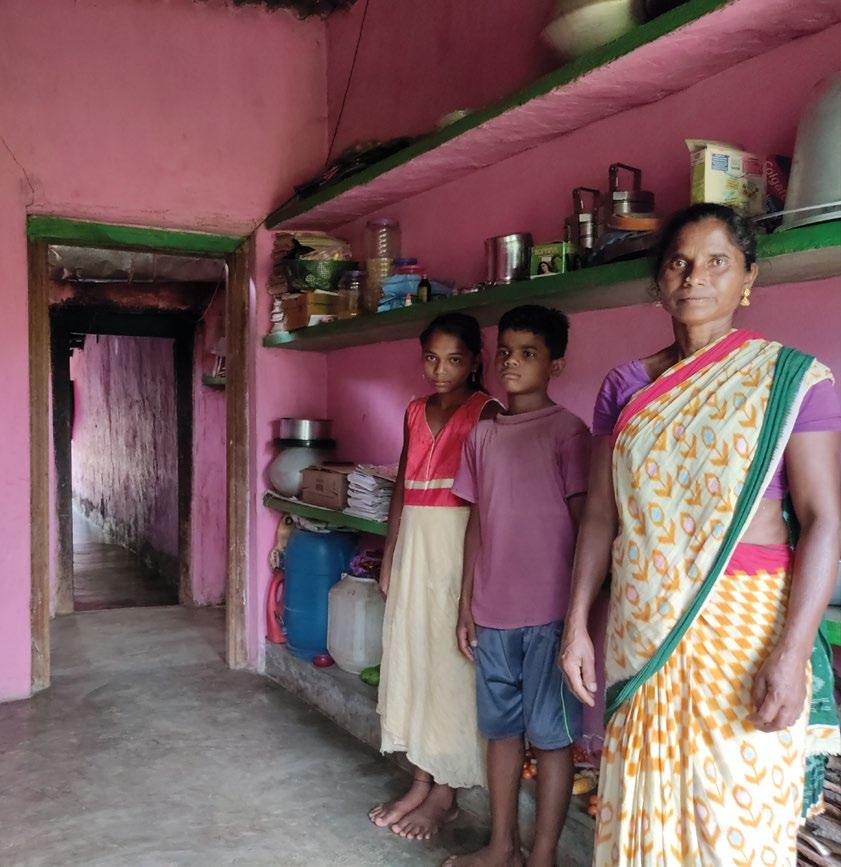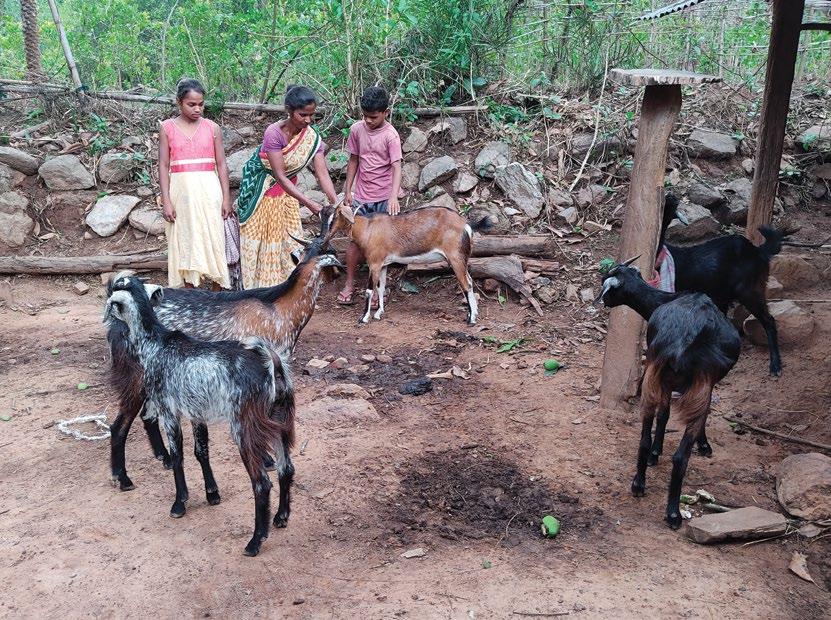
4 minute read
Inspiring Dignity
Helping Soura Widows in Odisha, India
BY JESSICA BANNINGA
Advertisement
Lila Raita with her family
A FEVER had left their husbands dead. This is a story all too familiar for Lila, Sirati and many other Soura women. Living in remote villages in East India, the Soura have little access to good medical care. Something as common as a fever often turns deadly.
Lila and Sirati are both 35-year-old Soura widows belonging to one of the oldest tribes in India. In the early 1900’s, the Souras were viewed as lower than the lowest caste, the “untouchables”. They were rejected from society and treated as unclean, facing poverty, malnutrition and illiteracy as a result.
In 1905, God led Canadian Baptists to India and this region. Canadian Baptist field staff, then called missionaries, embarked on a journey to embrace India through word and deed. The work started with the building of a hospital, the provision of health programs, Bible translation into local languages, leadership training and education. Today, the partnership between Canadian Baptist Ministries (CBM) and local churches in India continues to flourish, helping to empower Soura widows like Lila and Sirati.
Lila Raita with her family and goats

Lila
Lila, along with her son and daughter, live in a tin house in a small village in the Odisha region of East India. Her village has no modern transportation or communication methods. In addition, there is no health or education centre. Lila has a small plot of land and a few cashew trees, but this is not enough to provide for her son and daughter. Lila was struggling financially and worked as a day labourer.
The local church invited Lila to enroll in the Empowerment of Soura Widows program, funded by CBWOQ (Baptist Women) and CBM in partnership with Soura Baptist Christian Mandali Sommilani Churches. Since joining the program, she has received financial assistance to start rearing goats. Lila purchased two goats, and soon these two goats turned to four goats. Lila then sold one of the goats and repaired her home. The remaining money she saved for her children’s education.
Lila now attends the local church for Sunday services and prayer meetings. The church staff has seen her dedication and has invited her to serve in the church.
With two goats, Lila’s life has been transformed. She can now provide for herself and her children and is able to pay for their schooling. “I want to be an example for my community,” said Lila. “I want to show the other widows that they can be a part of this program. I am thankful that I can provide quality education for my children.”
Sirati
Sirati has one daughter and two sons and also lives in a tin house. Like Lila, she also has a small plot of land for cultivating food and some cashew trees, but this does not provide enough income for her family.
Seeing her need, Sirati was approached to join the Widow’s Empowerment Program. Through the program, she was given financial assistance and training to start a tailor shop in her house. Now, by stitching clothes she can earn a daily income! “Within two years, I had saved enough to open a bank account and start depositing my earnings,” she shares. “Because of this new income, I can send my daughter to school. I am very thankful that I can sustain my own future.”
Both Sirati and Lila have become an inspiration in their communities. Attitudes have changed and the widows are living a dignified life. Villagers are even showing concern and helping widows, instead of looking down on them. Other widows are seeing that change is possible and are looking to Sirati and Lila as role models in how they can develop their families.
The Empowerment of Soura Widows program is empowering widows like Sirati and Lila to find ways to break the cycle of poverty and better care for their children by earning an income. By using locally available resources, widows receive the tools and training to begin small business enterprises such as purchasing and selling local goods, creating handicrafts and raising animals. Microenterprise, savings support and training are provided for up to 40 widows a year, many under the age of 40.
There are many more Soura widows who want to provide for their family and build better lives for themselves. Thank you for your support of this project.
Jessica Banninga is a Communications Specialist with CBM.
This ongoing ministry is one of CBWOQ’s strategic giving projects for 2022. Learn more about the project and meet some of the widows you help with your support. Visit baptistwomen. com/causes or browse through 2020 and 2021 issues of Live magazine. Then consider making a donation at baptistwomen.com/donate.
Sirati Raita stitching








